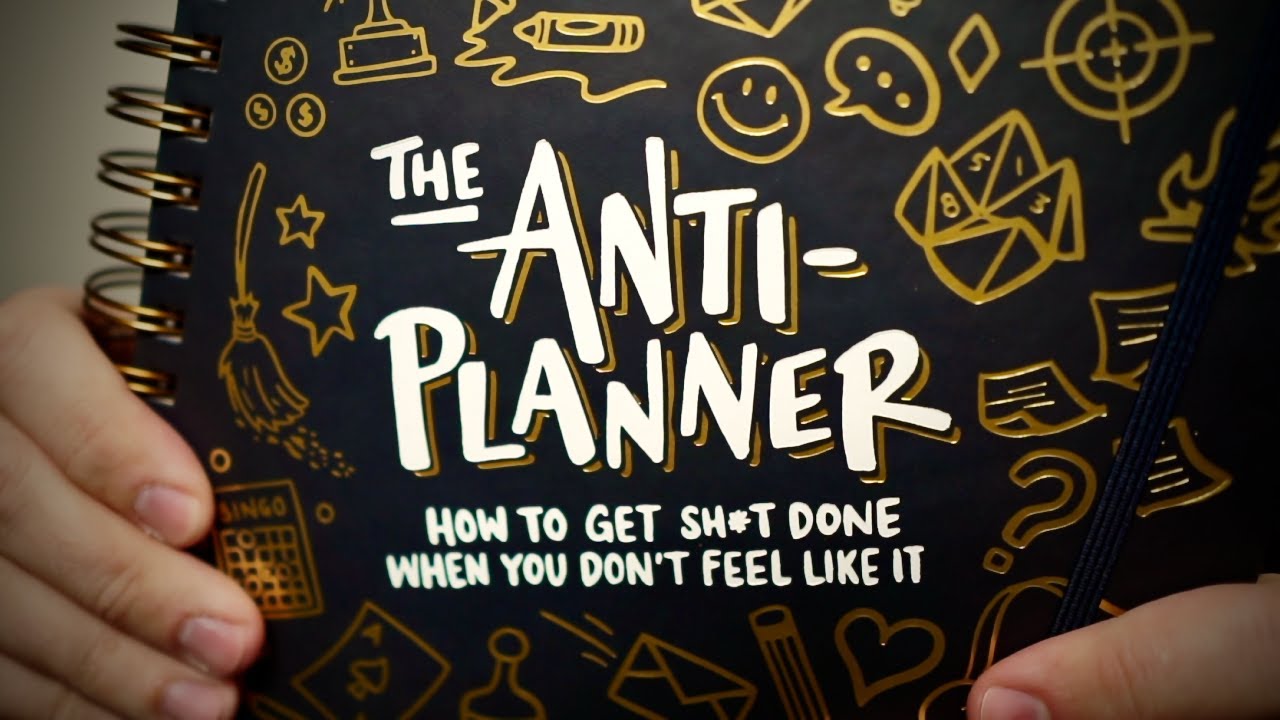How to live a productive life with ADHD 😏
Summary
TLDRIn this video, the speaker discusses productivity, offering practical advice especially for those with ADHD or similar tendencies. They challenge common misconceptions about productivity, emphasizing that it looks different for everyone and shouldn’t be measured by someone else’s standards. Key points include focusing on what truly matters, managing distractions, setting realistic daily goals, and acknowledging that life is more than just checking tasks off a to-do list. Ultimately, the speaker encourages viewers to align productivity with their personal values and to prioritize impact over endless accomplishments.
Takeaways
- 📝 Productivity should be defined by what matters to you, not just about completing tasks or checking boxes.
- 🧠 Many people with ADHD or fast-thinking brains feel they're unproductive, but they may be doing more than they realize.
- 💼 Productivity is not about comparison; someone may excel in one area but lack balance in another, so prioritize what's important to you.
- ⏳ No to-do list is ever completely finished, and the goal shouldn't be an empty list but focusing on what truly matters.
- ✅ Dedicate a portion of your day to what is most important to you. Even carving out 30% of your day for personal priorities can make you feel more productive.
- 🚫 Know what's not important and avoid distractions like social media that don’t serve your larger goals.
- ⏱️ Be realistic about how long tasks take. Overestimating what you can do in a day leads to feeling unproductive.
- ⚖️ Balance is key: more tasks don’t always mean more productivity, so prioritize quality over quantity.
- 👥 Productivity is about making a meaningful impact in your life and others', not just completing tasks.
- 🌍 Life is more than productivity—focus on meaningful experiences and connections rather than just checking off to-do lists.
Q & A
What is the main focus of the video?
-The video focuses on debunking common myths about productivity and offering strategies to live a more productive life, especially for individuals with ADHD or ADHD-like tendencies.
Why do the speaker's clients often seek coaching?
-The speaker's clients, many of whom have ADHD or similar traits, often seek coaching because they feel like they are not doing enough and want to be more productive. They seek guidance on how to focus, manage tasks, and complete their goals.
What is the first myth about productivity that the speaker addresses?
-The first myth addressed is that productivity is often seen as a vague concept. Many people feel unproductive, even though they may be accomplishing a lot in different areas of their life but are fixated on the things they haven't done.
How does the speaker define productivity?
-The speaker defines productivity as a personal measure of progress that varies for each individual. It's not about comparing oneself to others, but about identifying and pursuing what is most important to you.
What is one common misconception people have about their to-do lists?
-A common misconception is that productivity equals completing everything on the to-do list. The speaker points out that to-do lists are often never-ending because we constantly add new tasks, and we should not base our productivity solely on clearing them.
How does the speaker suggest individuals can feel more productive?
-The speaker suggests that individuals can feel more productive by dedicating a portion of their time (like 10-30%) to what is most important to them. Even if the rest of their day involves mandatory or routine tasks, focusing on priorities can enhance the sense of productivity.
Why is it important to identify what is NOT important?
-Identifying what is not important helps people avoid distractions and focus their time and energy on tasks that matter. With constant distractions like social media, people may waste time on things that don't contribute to their goals.
What role does time awareness play in productivity?
-Time awareness is crucial for productivity because understanding how long tasks actually take allows individuals to plan their day realistically. By doing so, they avoid feeling unproductive due to unrealistic expectations.
What final point does the speaker make about productivity and purpose?
-The speaker emphasizes that productivity is not the ultimate purpose of life. Instead, life is about creating meaningful experiences and relationships, and not just about checking off tasks from a list.
What advice does the speaker give about using planners and to-do lists?
-The speaker encourages using planners and to-do lists but stresses that tasks should add value to life. It's important to focus on things that matter and avoid becoming consumed by productivity for the sake of productivity.
Outlines

This section is available to paid users only. Please upgrade to access this part.
Upgrade NowMindmap

This section is available to paid users only. Please upgrade to access this part.
Upgrade NowKeywords

This section is available to paid users only. Please upgrade to access this part.
Upgrade NowHighlights

This section is available to paid users only. Please upgrade to access this part.
Upgrade NowTranscripts

This section is available to paid users only. Please upgrade to access this part.
Upgrade Now5.0 / 5 (0 votes)





